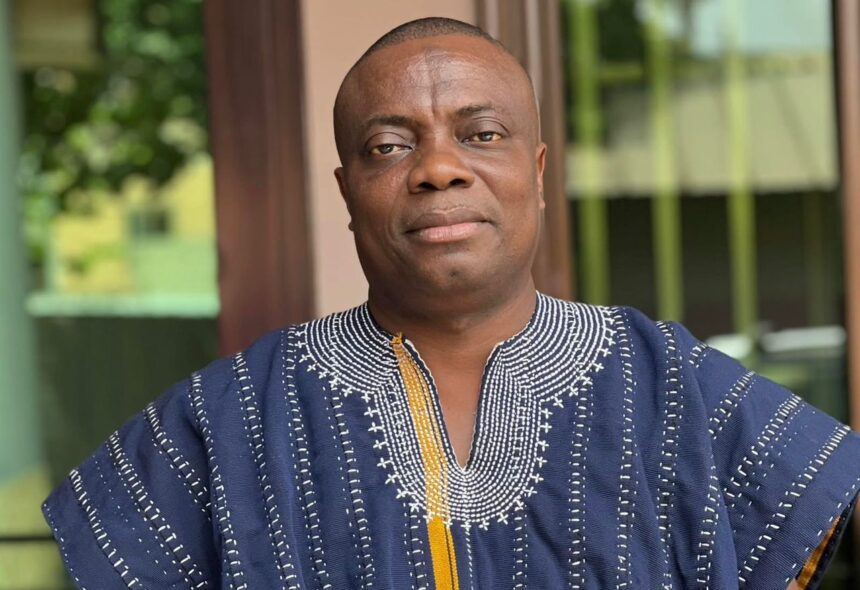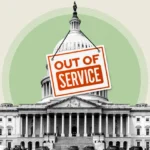The Herald’s banner — “Musah Danquah’s Presidential Ambitions Polls Breaking Up NDC and Mahama Government” — is not evidence of insight. It is evidence of a crisis.
Barely a year into governance, the NDC is already consumed by a premature succession battle. And the man fanning the flames? Mussa Dankwah, Ghana’s own self-styled Nostradamus of phone calls.
Dankwah, Executive Director of Global InfoAnalytics, has styled himself as a pollster but is increasingly viewed as a political actor hiding behind numbers.
His latest survey claims that Tamale South MP Haruna Iddrisu leads the NDC’s succession race into 2028 with 30% support. Johnson Asiedu Nketia follows him on 24%, Finance Minister Cassiel Ato Forson on 18%, and former Chief of Staff Julius Debrah with 10%.
North Tongu MP Samuel Okudzeto Ablakwa polls 8%, while Eric Opoku, Joshua Alabi, Armah-Kofi Buah, and Kwame Awuah-Darko each manage only 2%. Veteran politician Dr Ekwow Spio-Garbrah scrapes 1%, and poor Alfred Okoe Vanderpuije registers virtually nothing — yet still makes it into the tables, as though zero now qualifies as a scientific data point.
Far from measuring genuine sentiment, this poll looks designed to feed the rank and file of the NDC — and the wider Ghanaian public — a carefully staged narrative: to create artificial momentum for some and prematurely bury others.
With little transparency in methodology and heavy reliance on phone-call sampling that disproportionately captures urban voices, Dankwah’s surveys appear less about science and more about political theatre.
The succession race is already distracting key appointees from their mandate. As the Herald itself put it:
“Critics argue that the fixation on succession is distracting appointees from their mandate, undermining government cohesion and focus.”
And it gets worse. The paper makes plain that the NDC’s internal fissures are being widened by the very man who once styled himself as a scientific pollster:
“Party insiders believe Musah Danquah [sic], through his polling activities, is sowing discord within the government …”
This is no small charge. The Herald — no friend of the NPP — is now openly accusing Mussa of destabilising the party he claims to be helping. His latest poll conveniently places Haruna Iddrisu, the only Muslim in contention, and his fellow Muslim, at the top. Cozy though Dankwah may be with Ato Forson, the subtext is obvious: he is not measuring, he is manoeuvring.
Science or stunt?
Opinion polls should not be a glorified guessing game. Let’s be honest: Mussa’s “polls” are not science, they are stunts. He dials a few numbers, tallies whoever bothers to answer, and presto — another headline. That is not opinion research. It is clickbait dressed up in charts.
The real scientific verdict? Telephone polling today is among the most unreliable methods anywhere. Research shows it suffers from three fatal flaws:
- Nonresponse bias — Most people screen or ignore unknown calls, so the results reflect only a self-selecting sliver of society.
- Coverage bias — Rural, older, poorer, and less-educated citizens are systematically underrepresented.
- Measurement error — Over the phone, people give shorter, less thoughtful, and often more socially “acceptable” answers.
Worse still, mobile numbers are not tied to geography, meaning a poll supposedly “national” may overrepresent Accra and undercount Bawku and its environs.
In fact, a 2017 Ghana study (L’Engle et al.) tested mobile random digit dialling and found only a 31% response rate, with respondents skewed heavily towards urban, younger, more educated men. Entire swathes of the population — women, the elderly, rural dwellers — were effectively excluded. That is the shaky foundation on which Dankwah has built his empire of predictions.
So when he boasts that his 2024 presidential prediction was “accurate,” let’s be clear: it was a fluke, not a breakthrough. On parliamentary numbers, he was nowhere close. On the Akwatia by-election, his exit polls were a disaster — wrongly forecasting an NPP win.
Ironically, his pre-election poll was closer than his exit poll, when exit polls are supposed to be the gold standard. Only Mussa could manage to get that backwards.
Now, instead of measuring public sentiment on policy — jobs, inflation, education, health — Mussa is playing kingmaker in a primary that may not even happen until late 2027.
His polls pit cabinet colleagues against one another: a Chief of Staff versus a Finance Minister versus an Agriculture Minister versus an Education Minister.
When his figures suddenly show one minister overtaking another, do we really expect harmony in cabinet deliberations? This is not harmless speculation. It is sabotage disguised as analysis.
A Party Eating Itself
But should we blame Mussa, or the NDC that hands him the stage? The party is already eating itself alive:
- A national chairman still on a “thank you tour” nearly a year after victory, not the president.
- A Finance Minister rumoured to be paying pollsters for good press.
- An Agric Minister pouring millions into fertiliser schemes that look more like political fertiliser.
- A Chief of Staff parading his fitness — only for the public to focus on how much fitter his wife looks than him.
And all this while the government is not even one year old. It is reckless, it is premature, and it risks turning the president into a lame duck three years early — the most premature lame duck in Ghana’s history. Meanwhile, the NPP showed foresight, fixing its flagbearer race for January 31, 2026, giving itself time to heal divisions and sharpen its focus on the governing party.
So I ask: who cracks the whip? A chairman who wants the throne? A Chief of Staff with the same ambition? Ministers calculating their moves? Nobody. Which leaves Mussa Dankwah — the man with his phone calls — laughing all the way to the headlines (and perhaps to the bank), selling polls that are methodologically bankrupt and politically toxic.
Mussa is no oracle. He is a man who stumbled into one lucky prediction and has since mistaken it for divine insight. From fluke to farce, his polling circus is destabilising a government still in its infancy.
Dr Kofi Omintinming Apesemaka




